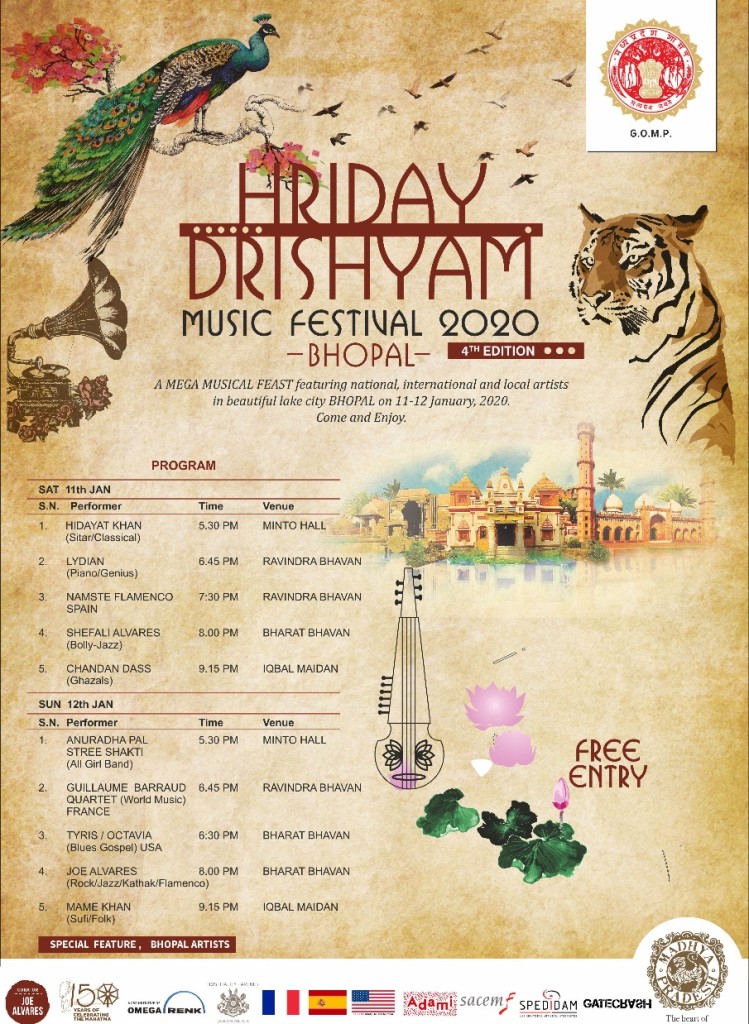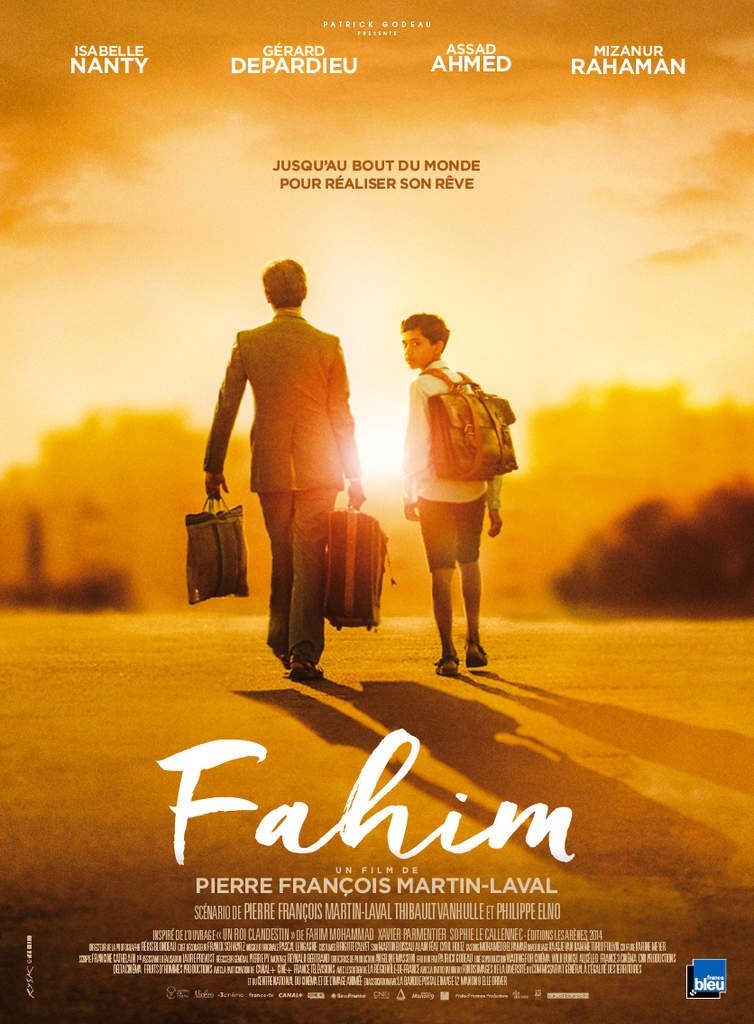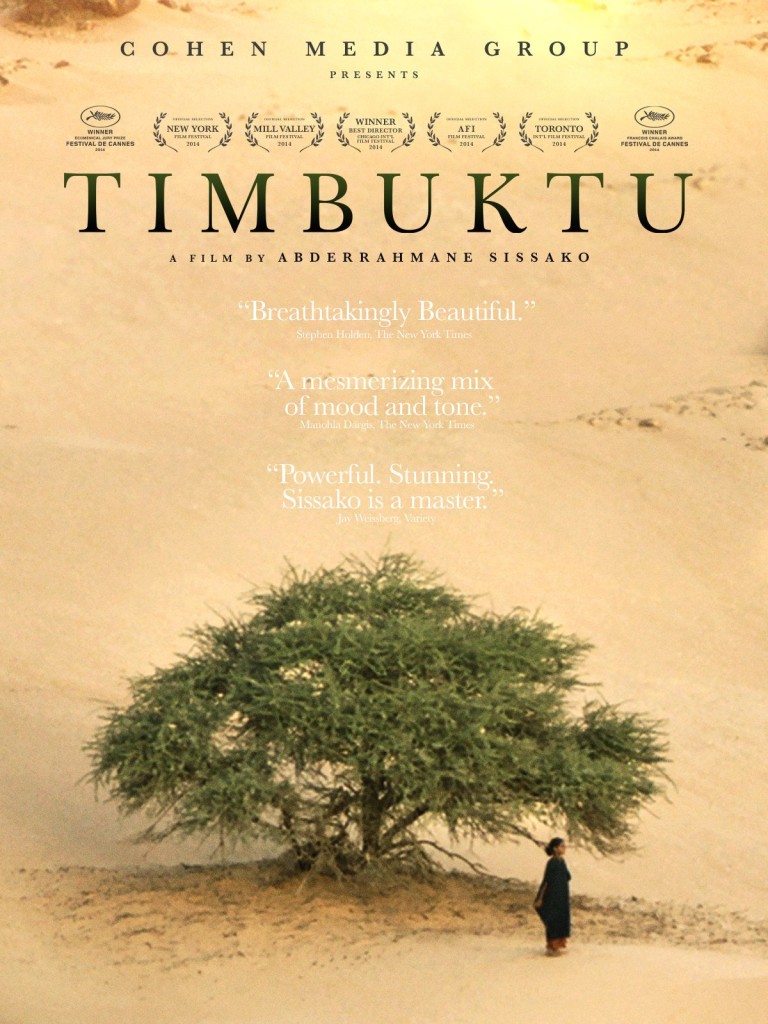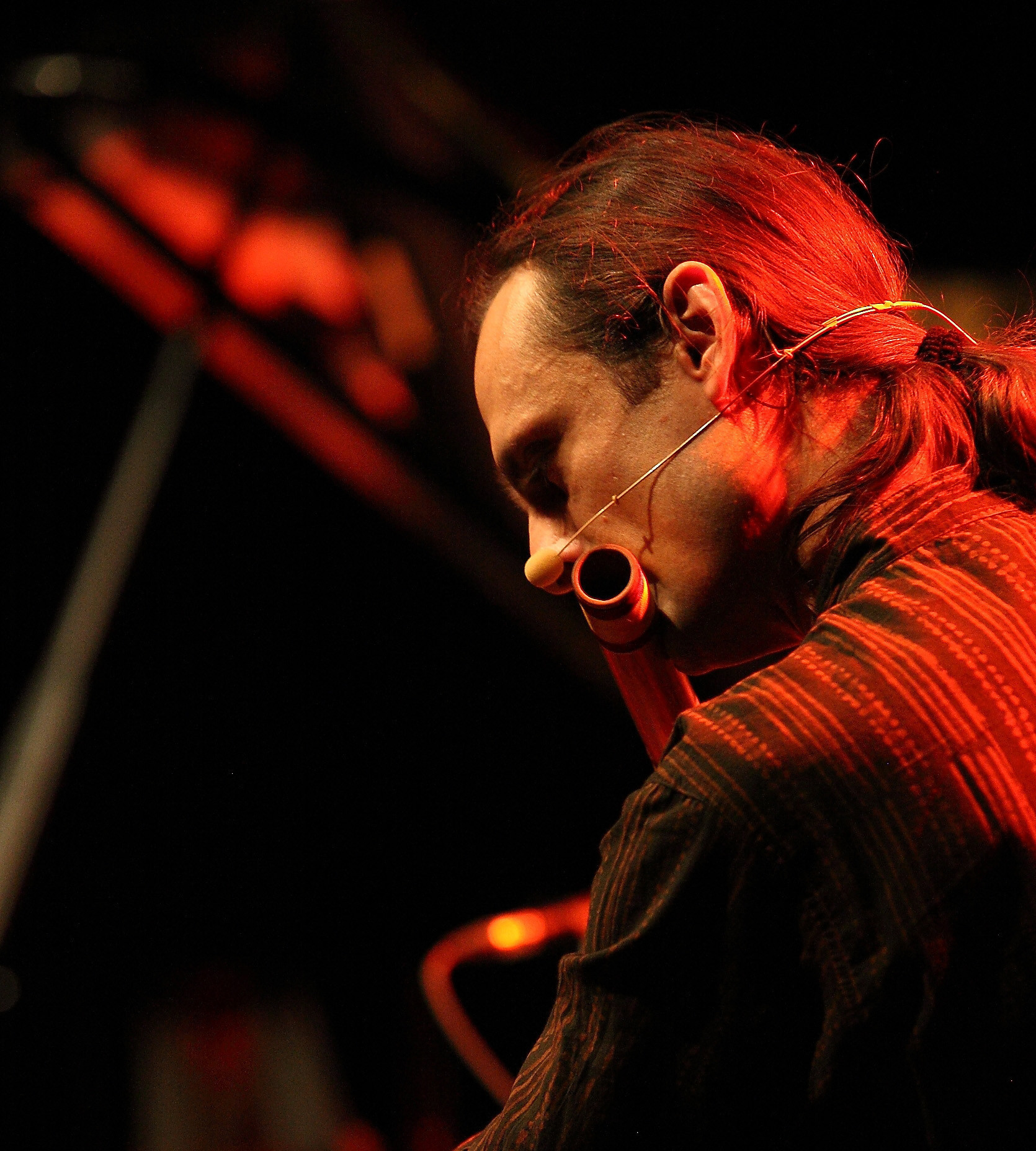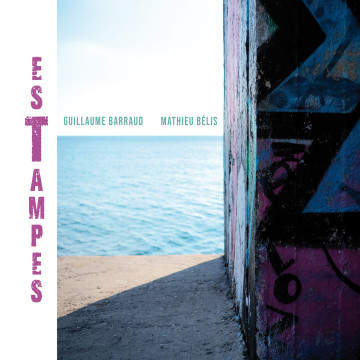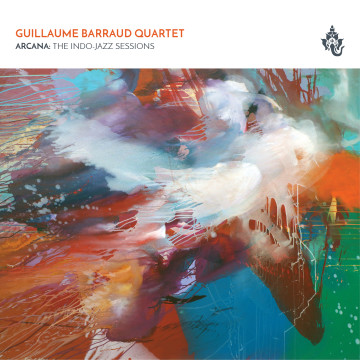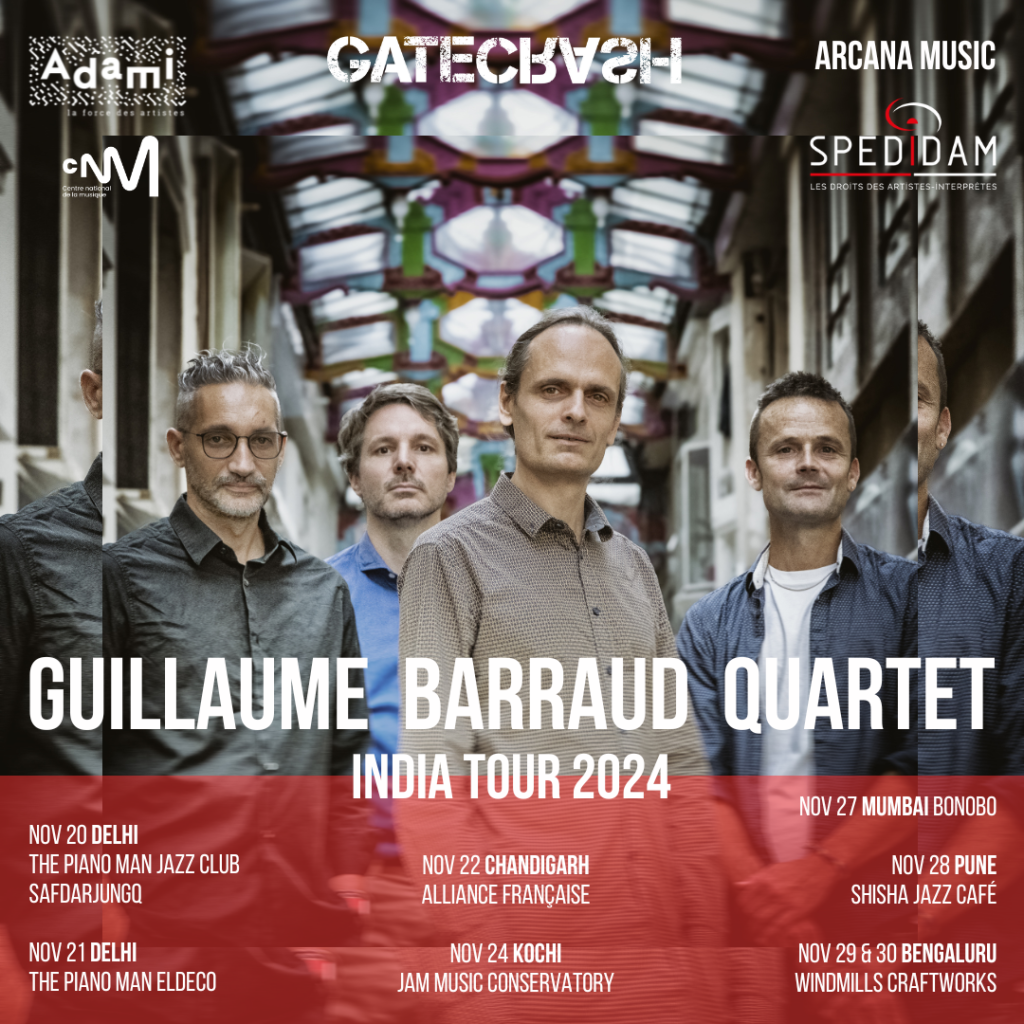
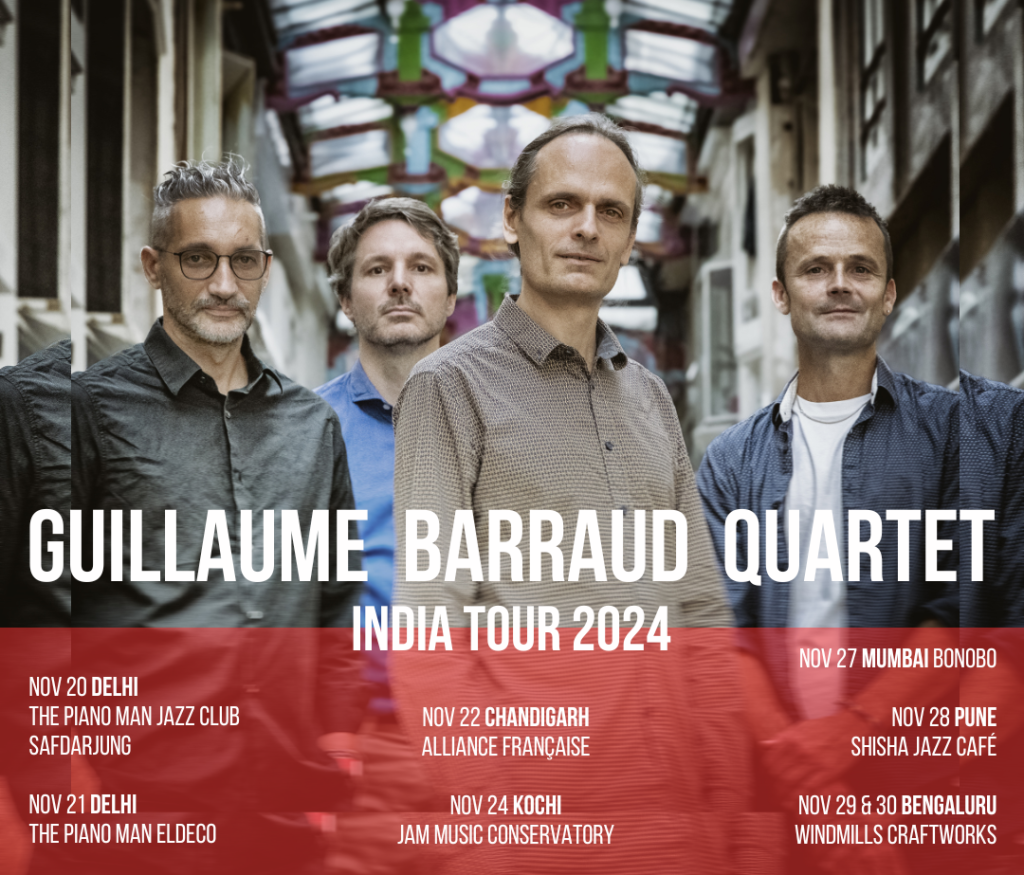
Article in Mumbai’s second
most widely sold daily, Mid-Day !
Composer-flautist Guillaume Barraud dives into his musical journey and Mumbai !
Amitabh Bachchan ke ghar ke saamne,” comes the answer; quite like a direction given to an autorickshaw driver in Juhu. The question that this writer posed was whether composer-flautist Guillaume Barraud had been to Mumbai before. The Paris-based Barraud is amused. Having lived in the city for five years in the early noughties, the 46-year-old certainly knows his way around town.
Even as he is speaking with this writer over the phone, Barraud is preparing for his next concert in Kochi. This is part of a India tour for the composer and his quartet — Tam de Villiers (guitarist), Guillaume Ruelland (bassist) and Maxime Zampieri (drums). “It is good to be back,” he admits.
The country has changed a lot since Barraud first visited it in 1999. “I was already into yoga and meditation in Paris. It exposed me to the sound of the flute,” he recalls. A guitarist by training, Barraud found the flute, more specifically the bansuri, more suitable for his expression. “I was moved so much, and transported by the hypnotic sound. It is like you sing into the flute. All your emotions move through your breath,” he remarks.
Having heard the sounds of Shakti and The Mahavishnu Orchestra, as well as the influence of Hindustani music on Miles Davis and John Coltrane, he was curious.
It so happened that the visit to India proved to be the beginning of an adventure. Barraud learned the bansuri through one of its greatest exponents, Pandit Hariprasad Chaurasia. Their meeting was a matter of pure chance, he admits. “I was travelling through Gujarat, and had bought my first bansuri. I was practicing at a hotel one morning when someone knocked on the door. A student of Panditji, and I started talking about the bansuri. Soon, we were friends. When I visited Mumbai to meet him, he introduced me to Panditji.”
This is when Juhu became the place to be for Barraud between 2001 and 2006. “Panditji’s school was also close by, and we had a band that would perform across the city,” he shares. The five years of learning would inform his approach towards composition and music. He shares, “All composition emerges from the mode, or the raga, as we say. For instance, with my first work, I was focussing on Gurjari Todi. I was playing the guitar on that particular scale, and was able to develop harmonic changes and progressions to find a narrative.”
The need to tell a story or have a conversation through music is one of the lessons handed down during his schooling with Pandit Hariprasad Chaurasia. Describing Panditji’s class, Barraud recalls, “For him, the class was an opportunity to develop new ideas, like in a music lab. We were his mirrors. He would experiment new ideas, and we would repeat in a question-answer form through music, creating a conversation, a narrative. Is that not so similar to jazz improvisation?”
It is no surprise then that the composer has adapted this style as a part of the composition process for the upcoming project, Tales Of The Bamboo Reed. “We plan to release the album next year, but it is currently a work in progress. The tour is an opportunity to build up the chemistry and tighten the sets as we go along,” he says. After performances in Delhi, Chandigarh and Kochi, they will arrive in Mumbai before the final performances in Bengaluru. Despite the number of stops, Barraud admits there won’t be enough time for a proper Mumbai darshan. “I would love to go and meet Guruji again. Sadly, we won’t have enough time. But that is the life of a musician on tour,” he concludes.
Shriram Iyengar – Mid-Day
‘ two instruments in symbiosis ’
— À vos marques… Tapages ! FR
‘ one masterful accomplishment ’
— Roots Music Report US
‘ un album indispensable ’
— Action Jazz FR
| January 21, 2026 | SOLO PERFORMANCE - PARIS, FR — PHILHARMONIE DE PARIS |
| January 30, 2026 |
GUILLAUME BARRAUD 4TET -
PARIS, FR — 38Riv JAZZ CLUB
Buy ticket |
| January 31, 2026 | SOLO PERFORMANCE - PARIS, FR — PHILHARMONIE DE PARIS |
| February 16, 2026 | NEW ALBUM RECORDING - PARIS, FR — MIDILIVE STUDIOS |
| February 17, 2026 | NEW ALBUM RECORDING - PARIS, FR — MIDILIVE STUDIOS |
| February 24, 2026 | SHANKARA IN RESIDENCE - BAGNEUX, FR — LA CHAUFFERIE |
| February 25, 2026 | SHANKARA IN RESIDENCE - BAGNEUX, FR — LA CHAUFFERIE |
| February 26, 2026 | SHANKARA IN RESIDENCE - BAGNEUX, FR — LA CHAUFFERIE |
| May 13, 2026 | GUILLAUME BARRAUD 4TET - TRONGET, FR — JAZZ DANS LE BOCAGE |
| October 2, 2026 | GUILLAUME BARRAUD 4TET - CHAMBERY, FR — JAZZ CLUB DE SAVOIE |
Previous Release
“The Indo-Jazz Sessions”
feat
Tam De Villiers : e-guitar
Johann Berby : e-bass
Xavier Rogé : drums
‘ to be applauded and enjoyed ’
— Songlines UK
‘ never fails to turn up interesting results ’
— Shindig Magazine UK
‘ Révélation ! . . . une belle surprise ’
— Jazz Magazine FR
ESTAMPES
last album release
Guillaume Barraud & Mathieu Bélis
team up to deliver a colorful
canvas of sounds.
‘two instruments in symbiosis’
— À vos marques… Tapages !
‘one masterful accomplishment’
— Roots Music Report US
‘les deux se connaissant bien,
l’alchimie est là’
— Culture Jazz FR
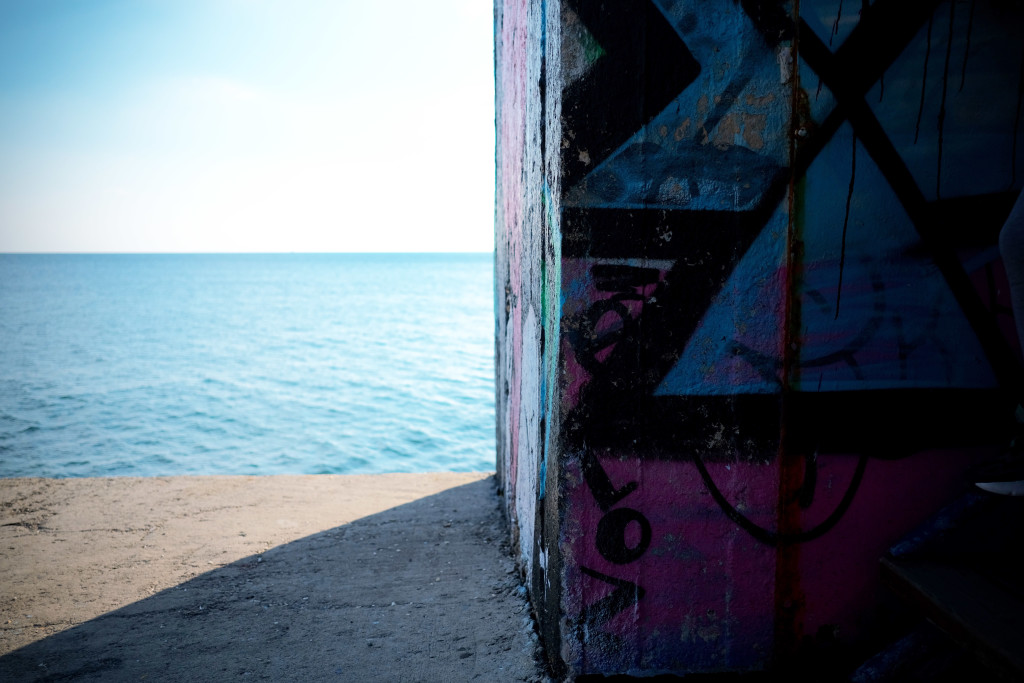
ARCANA
the indo-jazz sessions
After many years studying
with the legendary Indian flautist
Hariprasad Chaurasia, Guīllaume Barraud
explores the sound of the bansuri,
with his contemporary jazz quartet.
‘to be applauded and enjoyed’
— Songlines UK
‘never fails to turn up interesting results’
— Shindig Magazine UK
‘Révélation!… une belle surprise’
— Jazz Magazine FR
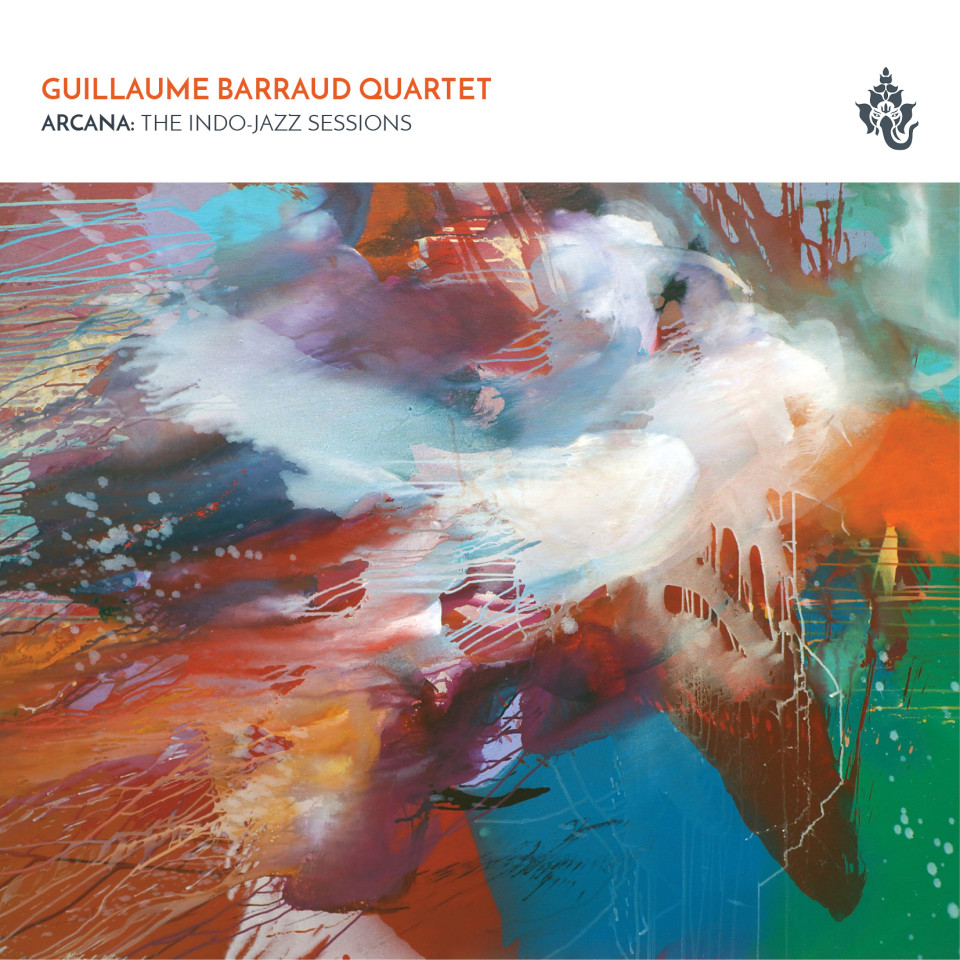
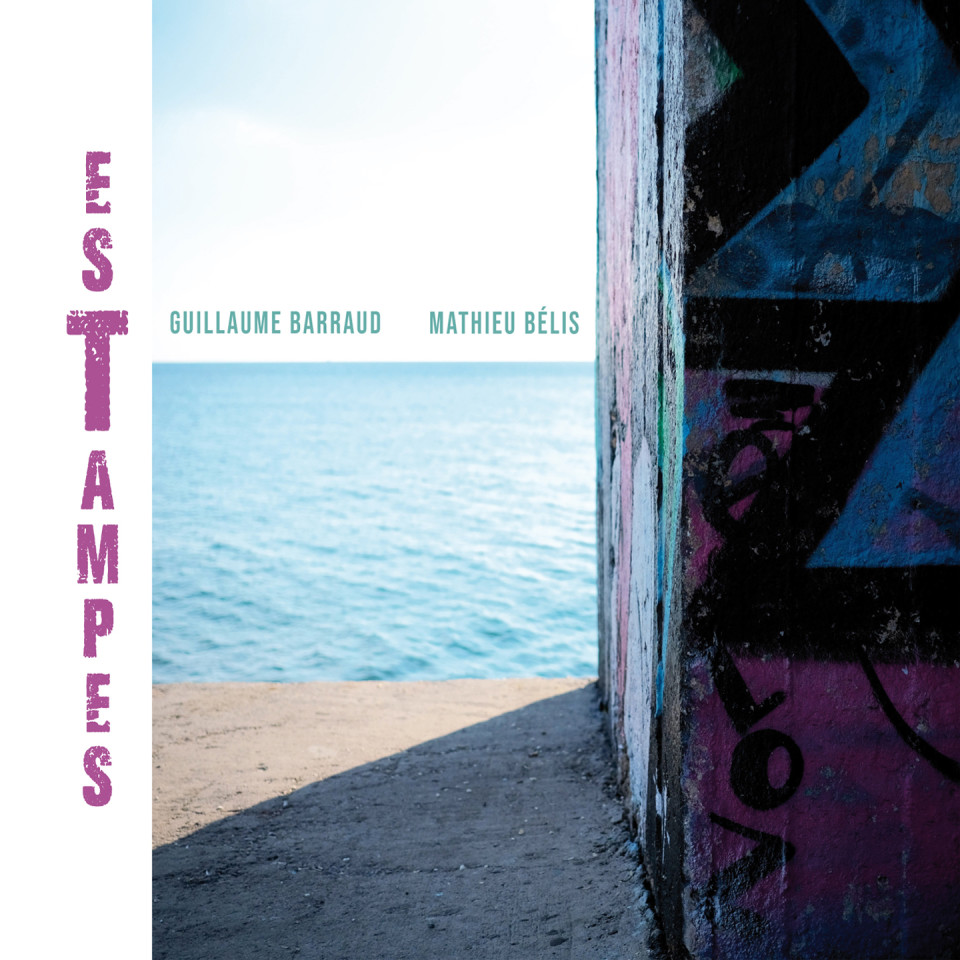
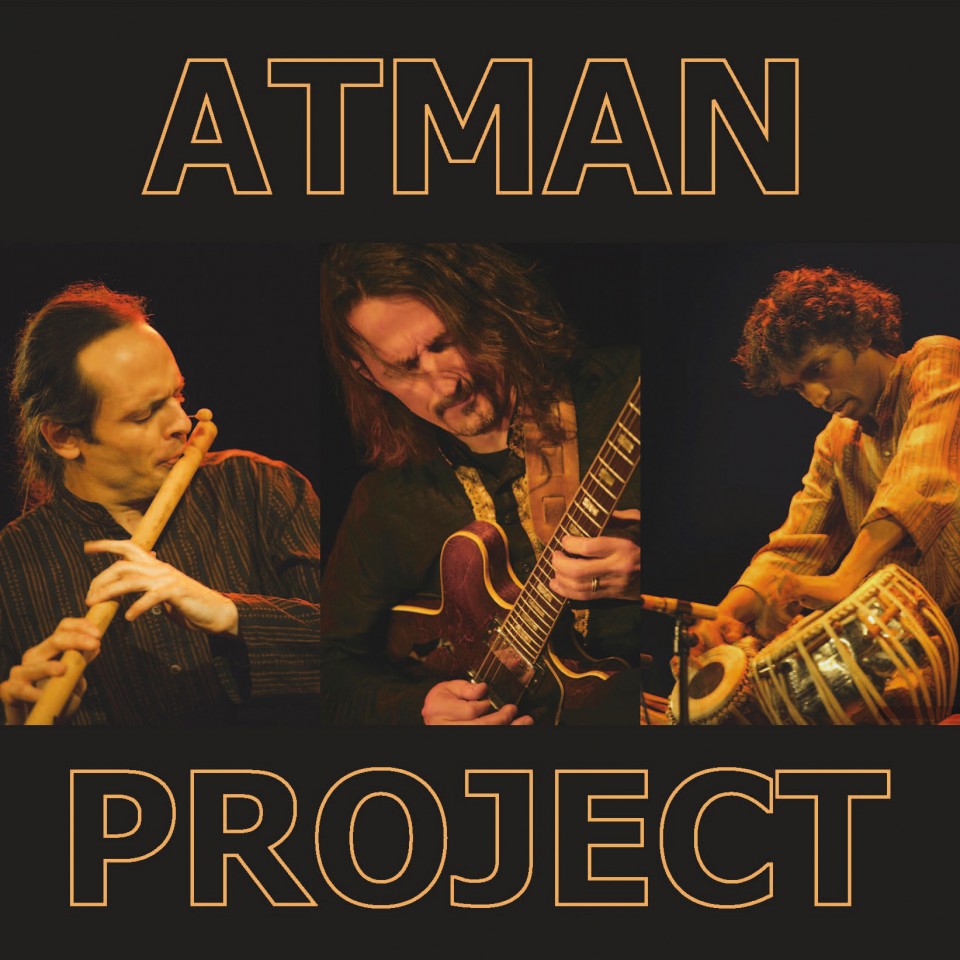
“If you have to play music,
you must dedicate yourself
completely to music.”
— Hariprasad Chaurasia
Events ahead
| January 21, 2026 | SOLO PERFORMANCE - PARIS, FR — PHILHARMONIE DE PARIS |
| January 30, 2026 |
GUILLAUME BARRAUD 4TET -
PARIS, FR — 38Riv JAZZ CLUB
Buy ticket |
| January 31, 2026 | SOLO PERFORMANCE - PARIS, FR — PHILHARMONIE DE PARIS |
| February 16, 2026 | NEW ALBUM RECORDING - PARIS, FR — MIDILIVE STUDIOS |
| February 17, 2026 | NEW ALBUM RECORDING - PARIS, FR — MIDILIVE STUDIOS |
| February 24, 2026 | SHANKARA IN RESIDENCE - BAGNEUX, FR — LA CHAUFFERIE |
| February 25, 2026 | SHANKARA IN RESIDENCE - BAGNEUX, FR — LA CHAUFFERIE |
| February 26, 2026 | SHANKARA IN RESIDENCE - BAGNEUX, FR — LA CHAUFFERIE |
| May 13, 2026 | GUILLAUME BARRAUD 4TET - TRONGET, FR — JAZZ DANS LE BOCAGE |
| October 2, 2026 | GUILLAUME BARRAUD 4TET - CHAMBERY, FR — JAZZ CLUB DE SAVOIE |
